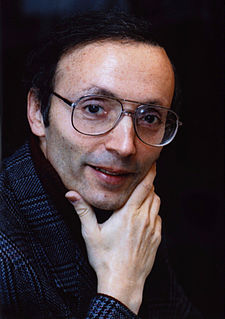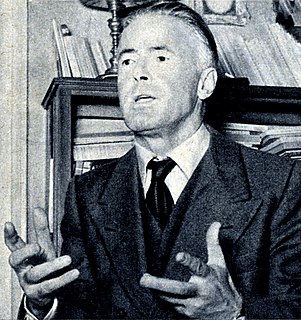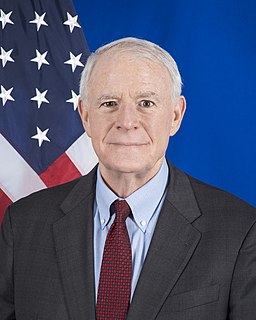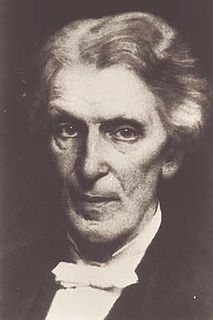A Quote by Khalil Gibran
The human heart cries out for help; the human soul implores us for deliverance; but we do not heed their cries, for we neither hear nor understand. But the man who hears and understands we call mad, and flee from him. Thus the nights pass, and we live in unawareness; and the days greet us and embrace us. But we live in constant dread of day and night.
Related Quotes
The philosopher stands at his desk in the lecture hall, and demonstrates away the soul of man, and with exact thought measures out his atoms and resolves him back to gas and air. But the revolutionary, below in the crowd, hears, and only translates what he hears thus to his brethren: 'Let us drink while we may; property is robbery; this life is all; let us kill and eat; there is no God.
The symbol of Goddess gives us permission. She teaches us to embrace the holiness of every natural, ordinary, sensual dying moment. Patriarchy may try to negate body & flee earth with its constant heartbeat of death, but Goddess forces us back to embrace them, to take our human life in our arms & clasp it for the divine life it is - the nice, sanitary, harmonious moment as well as the painful, dark, splintered ones.
As we live our human lives, let us be like the water. Let us be conscious of the flow. Let us not forget the great ground of being that draws us on through life. Let us live in a knowing hope, aware that all being is in transition, that all movement is back to the source. Let us treat those around us as reminders of our illusionary individuality. We know that they are us and we are them connected in ways we cannot fathom. Let us grow in compassion for all beings, for they share our journey.
Inside us all are pieces of that which makes the neagitve. Demons are neither good nor bad. Like you, they have many facets. It is that inner essence, or drive, if you will, that we all have that guides us through our lives. Sometimes those voices that drive us are whispered memories that live deep inside and cause us such pain that we have no choice except to let it out and to hurt those around us. But at other times, the voice is love and compassion, and it guides us to a gentler place. In the end, we, alone, must choose what path to walk. No one can help us with it. (Menyara)
Rare is the book that can actually transform us into better, more fulfilled people. Having combed through the research and documented case studies all over the world, Kristof and WuDunn present the clearest view I have ever seen of the human soul. A Path Appears tells us whether we are intrinsically good, why specific ways we parent our newborns help predict their chances for success, and how we can live lives of greater significance. This book, full of rich and riveting true stories, reminds us that human greatness is all around us, and even within us, if we dare to look.
However constant the visitations of sickness and bereavement, the fall of the year is most thickly strewn with the fall of human life. Everywhere the spirit of some sad power seems to direct the time; it hides from us the blue heavens, it makes the green wave turbid; it walks through the fields, and lays the damp ungathered harvest low; it cries out in the night wind and the shrill hail; it steals the summer bloom from the infant cheek; it makes old age shiver to the heart; it goes to the churchyard, and chooses many a grave.
I am a Christian because of that moment on the cross when Jesus, drinking the very dregs of human bitterness, cries out, My God, my God, why hast thou forsaken me? (I know, I know: he was quoting the Psalms, and who quotes a poem when being tortured? The words aren’t the point. The point is he felt human destitution to its absolute degree; the point is that God is with us, not beyond us, in suffering.)
Lord, help us to see in your crucifixion and resurrection an example of how to endure and seemingly to die in the agony and conflict of daily life, so that we may live more fully and creatively. You accepted patiently and humbly the rebuffs of human life, as well as the torture of the cross. Help us to accept the pains and conflicts that come to us each day as opportunity to grow as people and become more like you-make us realize that it is only by frequent deaths of ourselves, and our self-centered desires that we can come to live more fully, only by dying with you that we can rise with you.






































